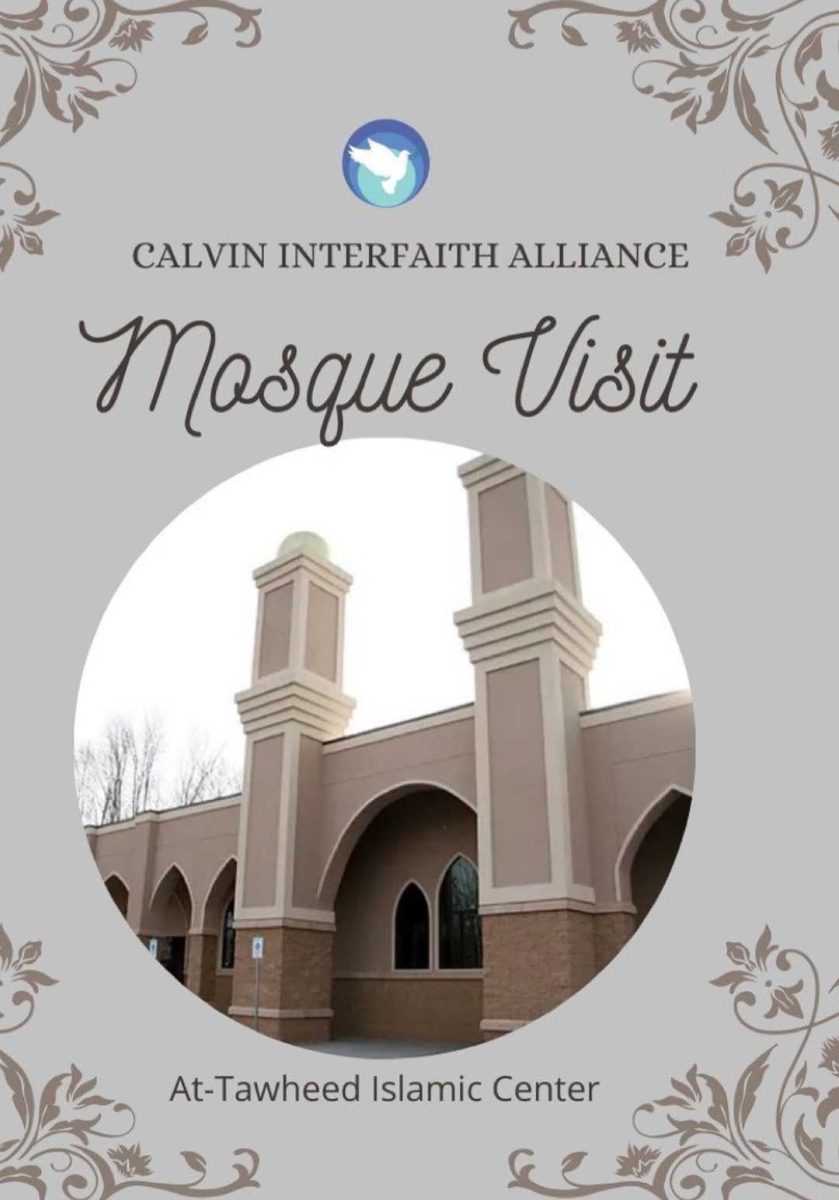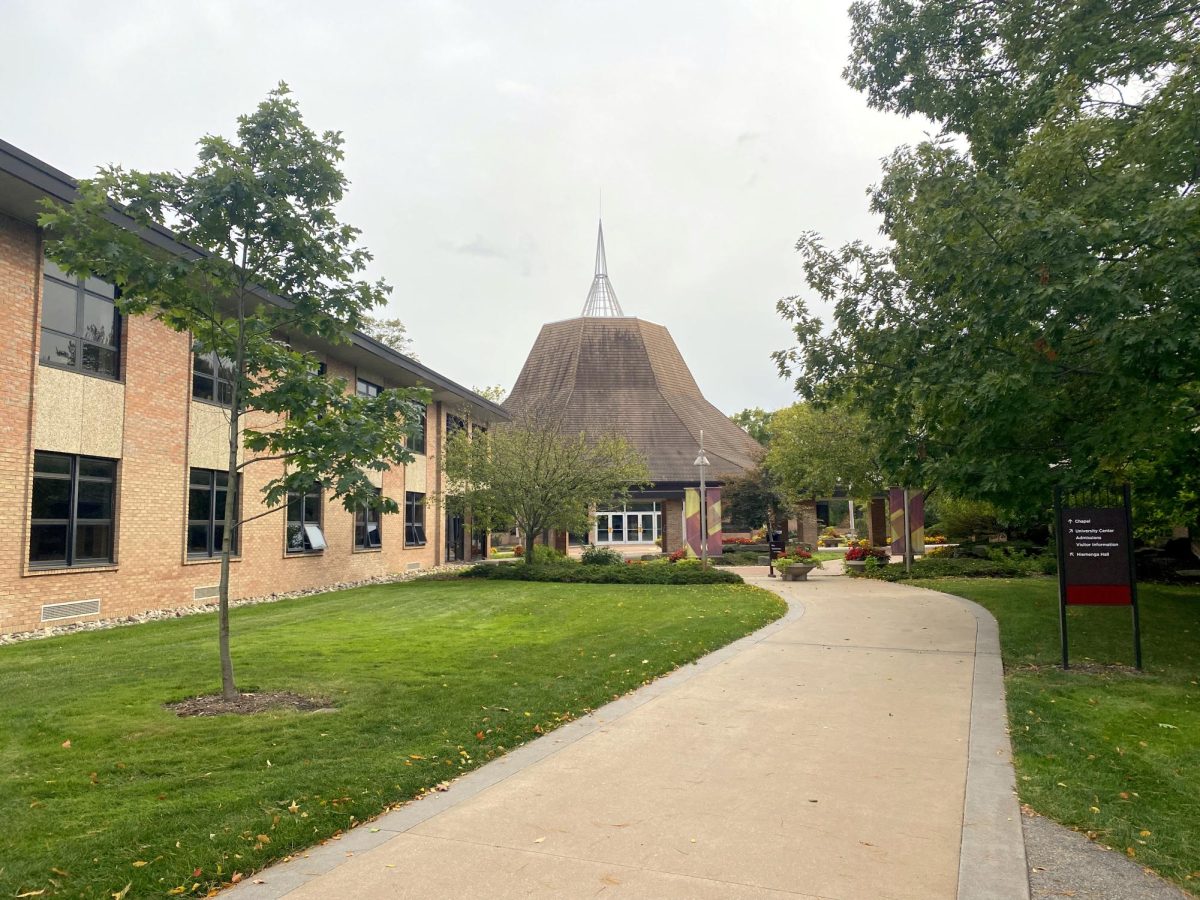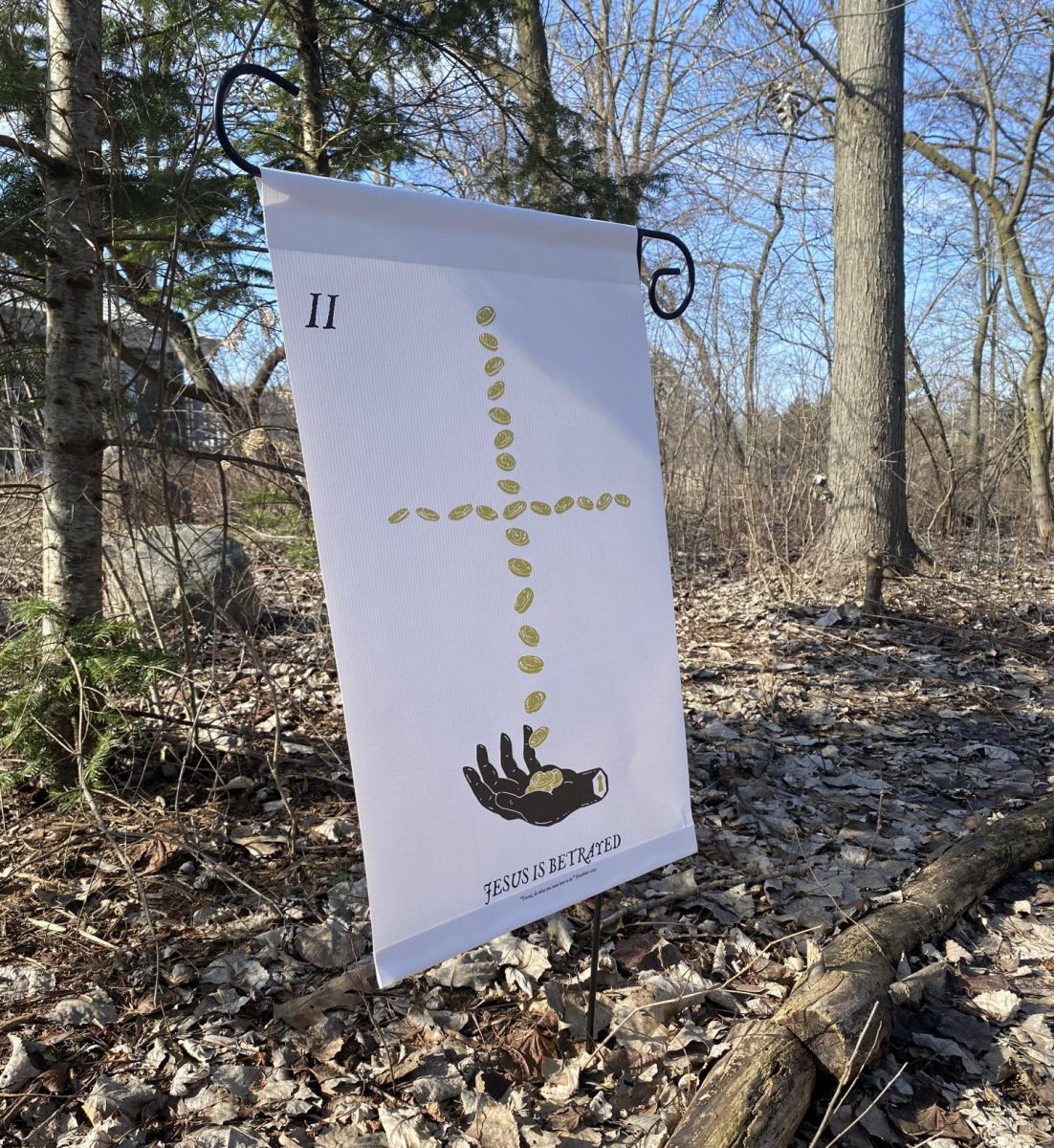Sara Hag Ali, a sophomore studying biology and a member of the Calvin Interfaith Alliance, appreciated her core religion classes here at Calvin. Before she took them, she said, “I was so ignorant about Christianity…I didn’t understand the concept of the Trinity, I didn’t understand redemption, I didn’t understand how Jesus was God. It was so interesting hearing about a different perspective!”
Hag Ali is Muslim, which places her in contrast with a solid majority of Calvin students who, according to university statistics, largely come from Protestant Christian backgrounds. For the freshman who grew up in Sunday school, these elements of Christian theology are well-worn territory. But for students like Ali, it is a border-crossing experience.
Calvin does not currently furnish data about the number of students affiliated with religions other than Christianity, and that includes Islam. The last time this data was recorded was in 2019, in which there were 26 students with non-Christian religious affiliation, or 0.7% of the total student body.
According to Director of Institutional Effectiveness & Analytics Trent Gooding, questions regarding church affiliation in applications such as Common App change frequently, and so the Census Day Report does not currently record these. While he did say that Calvin maintains separate records of specific Christian denominational affiliations provided in student applications, this data does not include statistics for Islam, Buddhism or other non-Christian religions.
Muslim students specifically have a variety of different reasons for choosing Calvin. Some are attracted to certain strong programs and others are encouraged by family and friends to attend. Calvin’s international student financial aid package has also been a motivating factor, according to Hag Ali and Haleema Jamil, a sophomore studying finance.
While many have found support from students and staff here, there are also several specific issues the Muslim community on campus faces that have yet to be fully resolved, including full access to halal food — food prepared in a manner and with ingredients acceptable to the Quran — and a lack of connection with other Muslim students, according to Jamil. While Calvin Dining Services introduced halal meat last semester, the constraints of Calvin’s dining hall kitchens mean that options remain limited.
Jamil says that her experience at Calvin has been generally very positive so far. Calvin staff and faculty have been very cooperative in helping her continue to live a Muslim lifestyle, she told Chimes. The dining hall staff, for instance, worked with her last year to provide food which is considered pure to eat under the halal specifications in the Quran for her and other students. She also says that the dining hall staff made special arrangements for her and others to be able to eat during Ramadan, a month of fasting where Muslims do not eat from dawn until dusk.
While she said she is very grateful for these provisions, she is sometimes unable to eat the protein that the dining halls provide at each meal. “Having at least one meat every meal which is halal would be great,” she says.
Jamil has found support in residence halls on campus too. Not only did the housing staff ensure that her roommate would be welcoming to her as a Muslim, they also made the process of installing a bidet — an essential part of Islamic toilet etiquette — “so easy!”
While her home country, Pakistan, has a very small Christian population, Jamil has found that being at a Christian college has ultimately led her to become more invested in her own Muslim faith as she understands more about the similarities and differences between the two religions. However, she wishes a better connection was facilitated between Muslim students on campus. Because she has struggled to find other Muslim students on campus, she has missed celebrating holidays like Eid, which she says is “equivalent to Christmas” with her community.
Hag Ali has also generally enjoyed her experience at Calvin. While she sometimes struggled to understand aspects of Christian theology incorporated into her biology classes, she says that professors were very willing to help her. Recounting one class in which her professor lectured on Christian perspectives on evolution, she said, “that actually made me go and ask my mom, ‘What is the Muslim belief on evolution?’” She, like Jamil, has found that studying through a Christian lens has led her to ask many more questions about both Christianity and Islam.








